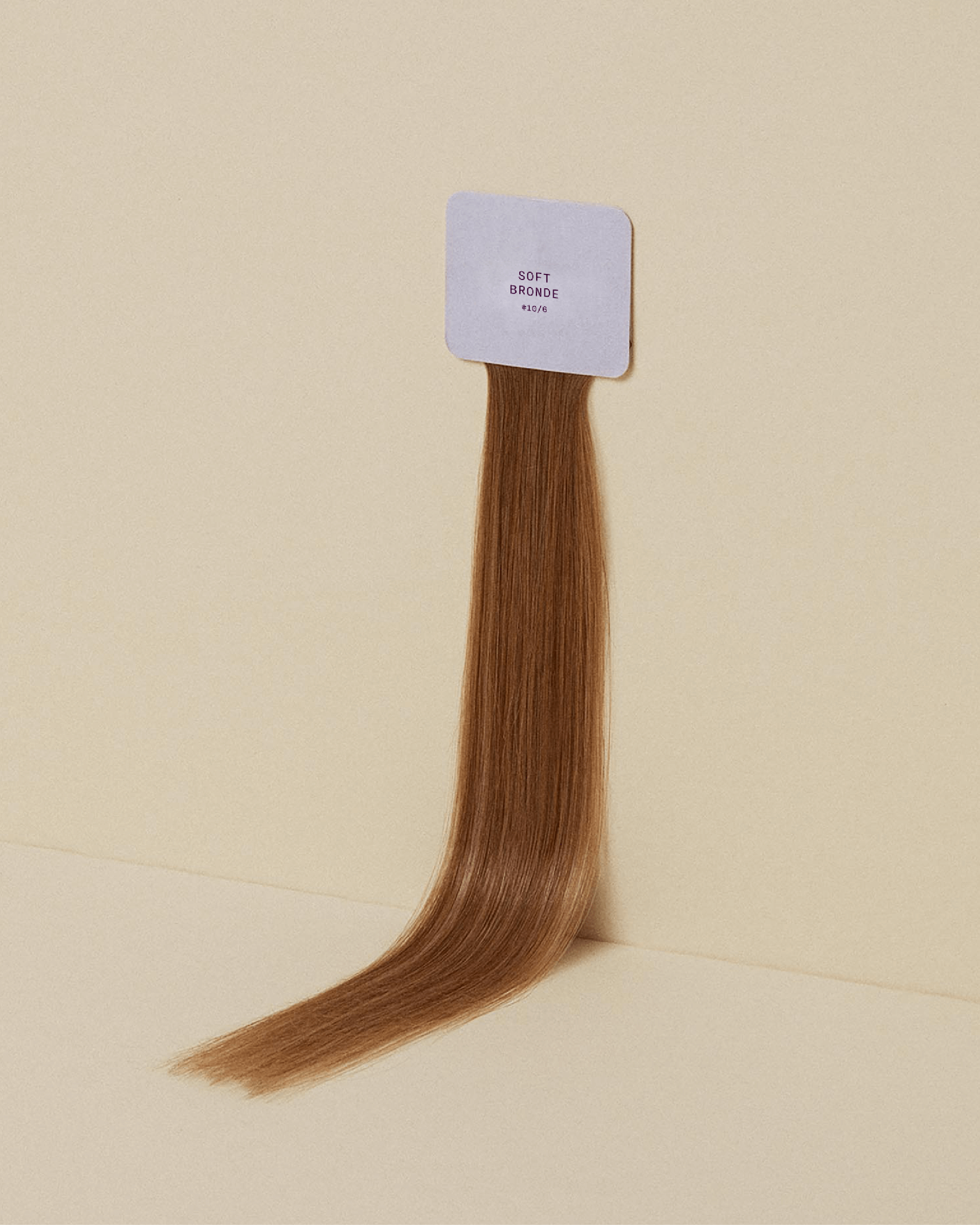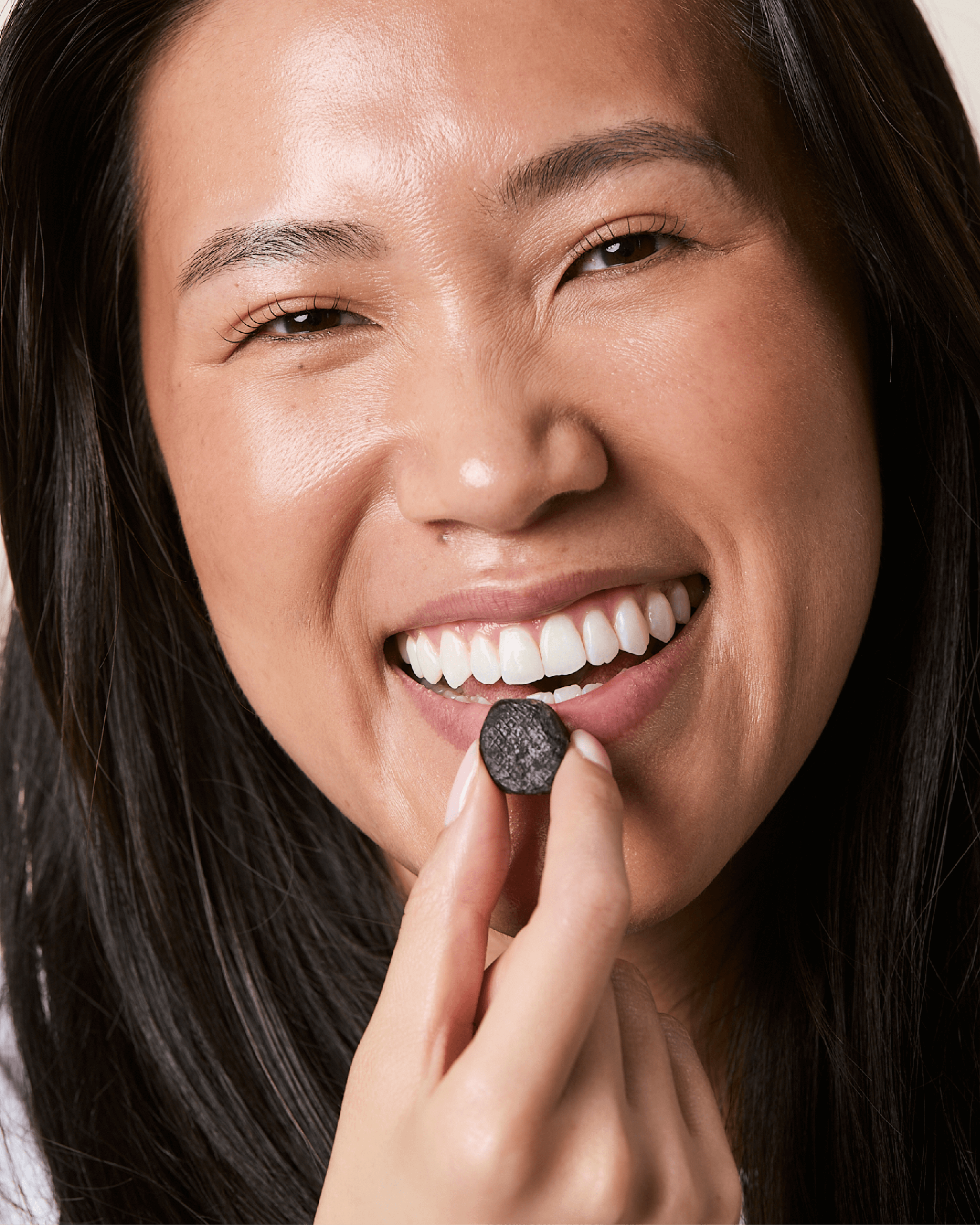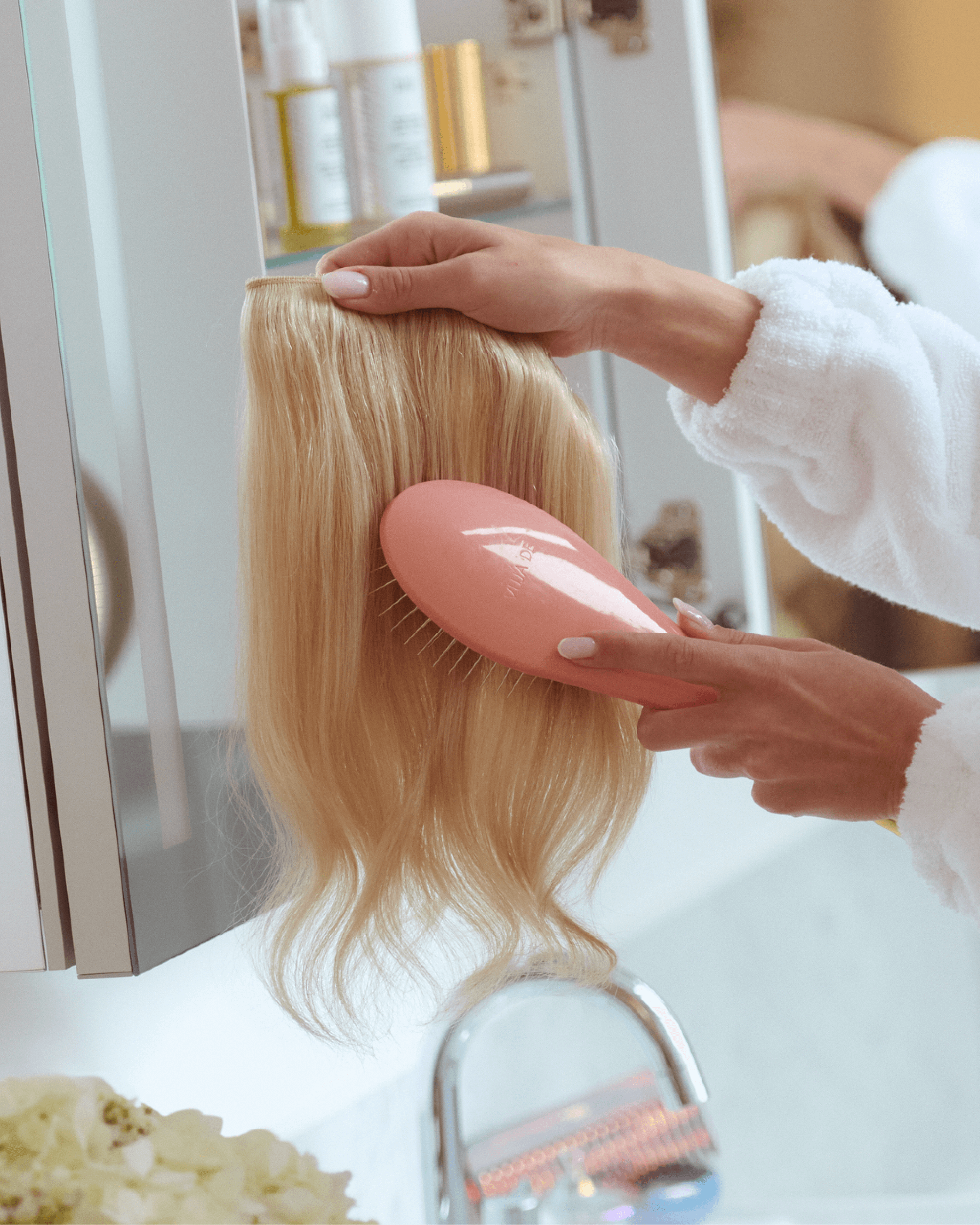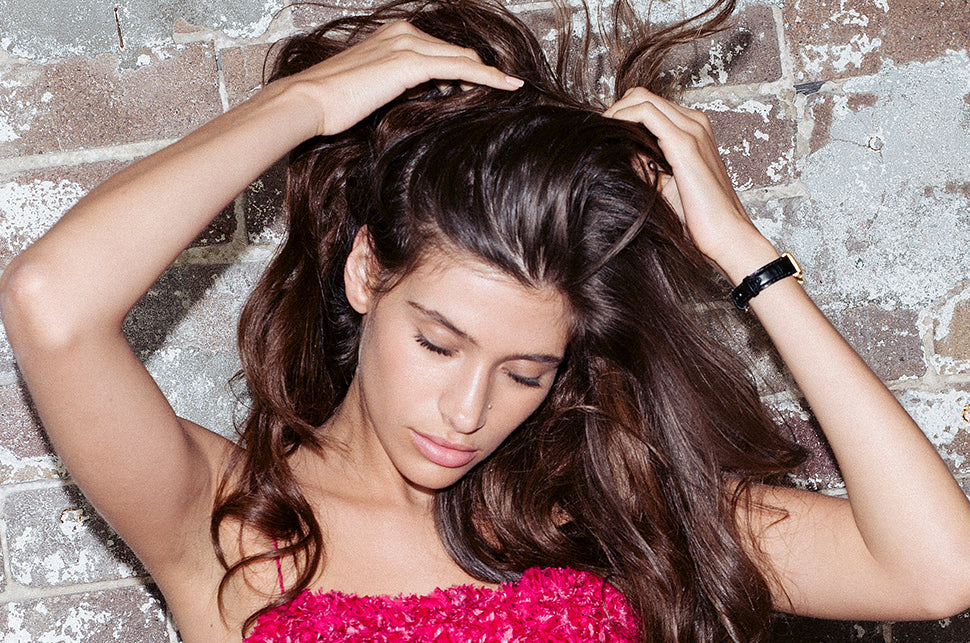Dandruff is the frustrating, yet super common condition you're all too familiar with; a flakey scalp.
Dandruff affects half the population, so it's pretty normal to have dandruff.
Normal or not, it's a pain in the butt and if you've got it, you're likely on a mission to crack the scalp code and get rid of it, asap.
So what causes dandruff?
Well before we get into it, first you need to identify whether you've got dandruff or a dry scalp.
I know, you might read this and think they're exactly the same.
While the symptoms are the same, dandruff is a condition, whereas a dry scalp can be caused by dry skin or a dirty scalp.
How do you know the difference?
Dandruff appears as big flakes and usually also comes with oily, red scaly skin.
A dry scalp on the other hand appears as much smaller flakes and you’re likely to experience dry skin in other areas of your body too.
With that said, if you're confident it's dandruff that your scalp is suffering from, here's everything you need to know...
What causes dandruff?
Unlike a dry scalp which is caused by not enough moisture in the scalp, dandruff is actually caused by too much oil build up.
This is why people with oily hair tend to be more susceptible to dandruff.
It's also why leaving your hair unwashed for too long can trigger dandruff.
As discussed on everydayhealth.com '“It’s a common misconception that dandruff is caused by dryness; in reality, it’s usually due to an overgrowth of a harmless yeast,” explains Jessica Wu, M.D., a Los Angeles dermatologist and assistant clinical professor of dermatology at the University of Southern California Medical School.
“In some people, the yeast starts to feed on the excess oil and dead skin cells on the scalp, causing the skin cells to shed more frequently and clump into flakes.”'
How to get rid of dandruff
Anti-dandruff shampoo.
In most cases of dandruff, you can treat your scalp by consistently using an over the counter shampoo.
Once you've used to a shampoo to get the dandruff under control, you can gradually go back to using a regular shampoo and only substitute your anti-dandruff shampoo every now and then.
Cleanse your hair frequently.
Don't leave your hair to get super dirty.
The moment your hair starts appearing oil, it's time for a good wash.
Having a cleansed scalp will help treat dandruff, so you don't want to let your scalp's natural oils build up and cause a dirty scalp.
Stop scratching!
Dandruff can be itchy, but please DO NOT itch and scratch.
Your scalp is already sensitive and scratching will irritate your scalp even further.
If you scratch, it becomes a vicious cycle.
Avoid using too many hair products.
While your scalp is sensitive and itchy, it's best to avoid hair products as much as possible.
Too many products can irritate sensitive skin and make your symptoms worse.
Avoid stress.
Did you know that feeling stressed for extended periods of time can make dandruff worse?
While stress doesn't cause dandruff, experiencing stress causes our immune system to be weaker, allowing dandruff to prosper.
Tried all this and still can't kick dandruff?
Then it's best to consult with a doctor! If anti-dandruff shampoo as well as other lifestyle changes aren't improving your symptoms, the dandruff could be caused by psoriasis or eczema, so it's best to get a diagnosis from a professional.
Does dandruff go away?
The condition itself doesn't disappear, meaning if you've got dandruff you're most likely always going to be susceptible to it.
However, of course as we covered, if you learn how to manage your dandruff correctly you can treat the symptoms and keep them at bay.
Should I wash my hair every day if I have dandruff?
It's normally preached that the less you wash your hair, the better.
However if you have dandruff, you should be washing your hair every day with a medicated anti-dandruff shampoo.
These anti-dandruff shampoos should contain ingredients such as ketoconazole, selenium sulfide, or zinc.
If you have textured hair or dry ends and are concerned about drying out your hair too much by washing daily, there are anti-dandruff conditioners you can also use to keep your ends hydrated.
Read more
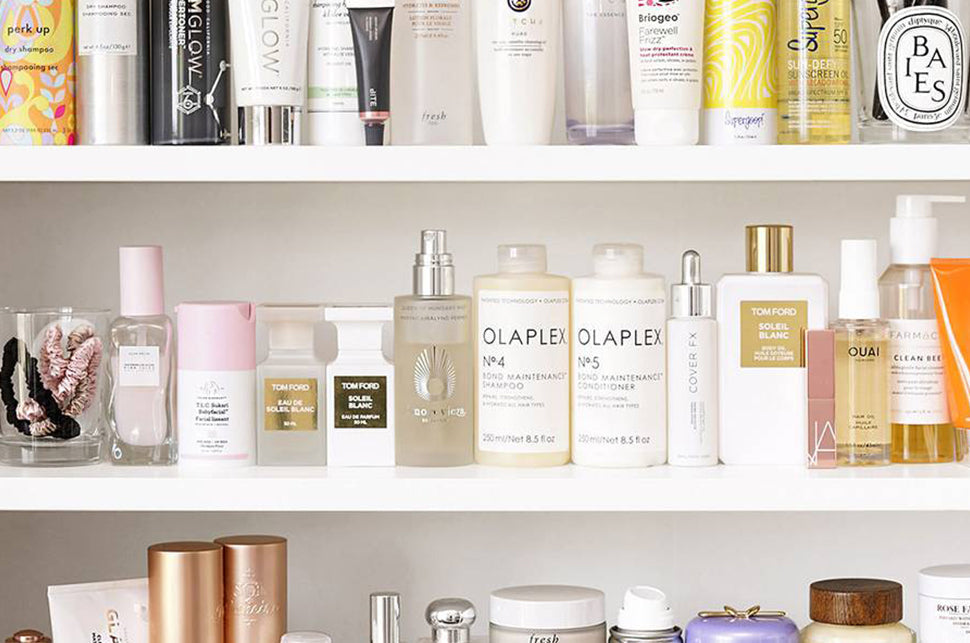
I love hair care. My weakness? Consistency. It's not unusual for me to get caught up in the hype of a new hydration mask or miracle serum. My hair care routine has no shortage of products. The s...

Frizzy hair got you feeling more Mia Thermopolis than Amelia Mignonette Grimaldi Thermopolis Renaldo, Princess of Genovia?
